Modern Native Feasts

ARSENAL PULP PRESS


VANCOUVER MODERN NATIVE FEASTS Copyright 2013 by Andrew George Jr. All rights reserved. No part of this book may be reproduced in any part by any meansgraphic, electronic, or mechanicalwithout the prior written permission of the publisher, except by a reviewer, who may use brief excerpts in a review, or in the case of photocopying in Canada, a license from Access Copyright. ARSENAL PULP PRESS Suite 202 211 East Georgia St. Vancouver, BC V6A 1Z6 Canada arsenalpulp.com The publisher gratefully acknowledges the support of the Government of Canada (through the Canada Book Fund) and the Government of British Columbia (through the Book Publishing Tax Credit Program) for its publishing activities. The author and publisher assert that the information contained in this book is true and complete to the best of their knowledge.
All recommendations are made without a guarantee on the part of the author and publisher. The author and publisher disclaim any liability in connection with the use of this information. For more information, contact the publisher. Note for our UK readers: measurements for non-liquids are for volume, not weight. Design by Gerilee McBride Cover and interior photographs and food styling by Tracey Kusiewicz, Foodie Photography Author photograph, page 9: Rob Gilbert Editing by Susan Safyan Library and Archives Canada Cataloguing in Publication George, Andrew, author Modern native feasts : healthy, innovative, sustainable cuisine / Andrew George Jr. Includes index.
Issued in print and electronic formats. ISBN 978-1-55152-508-2 (epub) 1. Indian cooking. 2. Indians of North AmericaFood Canada. Title. Title.
TX715.6.G4586 2013 641.59'297071 C2013-903243-6 C2013-903244-4
I would like to dedicate this book to my spouse, Cecilia, and our wonderful children, Mckayla and Andrew, for their support, patience, and numerous sacrifices throughout my culinary journey. I would also like to welcome our granddaughter, Sophia, to the family. To all my culinary students, past, present, and future, I hope this book inspires you to take your career in the world of Aboriginal cuisine to the next level, and to be proud of who we are and where we come from.

CONTENTS

I grew up in Telkwa, British Columbia, the third eldest of six kids. Our home didnt have indoor plumbing or running water. For food, my family and I had to take advantage of what was available to us seasonally, in the wild.
In the spring and summer, we would harvest trout and salmon; in the fall, we would hunt moose, rabbit, and deer; in the winter we would go ice fishing. Aboriginal people have a strong tie to the land and to their traditions, and it has always been my goal to fuse these traditional values with modern and innovative cooking techniques. With that in mind, at the age of 18, I decided to become a chef. In 1983, I was accepted into the Vancouver Vocational Institute (now Vancouver Community College) for culinary training, and I graduated in 1985. I continued my education by taking apprenticeship programs through the British Columbia Institute of Technology. While still apprenticing, I became the head grill cook for the First Nations Restaurant at the Folk Life Pavilion at Expo 86 in Vancouver.
I continued my apprenticeship afterward at Avenue Grill in Vancouver before completing my training at Isadoras Restaurant on Granville Island (in Vancouver) in 1989.
SUPERCHEFS The SuperChefs of the Universe program was originally created by Vancouver chef, clown, and dentist Greg Chang to help fight childhood diabetes and obesity by teaching kids the joys of cooking. In 2012, I established the first Indigenous SuperChefs Camp with them. We taught the kids not only how to cook, but also how to create meals that were traditional and healthy. On National Aboriginal Day (June 21), the kids cooked for more than a hundred Kwakwakawakw District Council community members, and theyve since participated in several local food festivals.
In the early 90s, I decided to open my own business, the Toody Ni Grill and Catering Company, which specialized in Northwest-style Native cuisine.
In the early 90s, I decided to open my own business, the Toody Ni Grill and Catering Company, which specialized in Northwest-style Native cuisine.
In 1992, I was chosen as a representative for the Aboriginal peoples of Western Canada, along with four other Native chefs from across Canada, to participate in the World Culinary Olympics in Frankfurt, Germany. This event was attended by 13,000 people from more than fifty-four different countries, and we were the first Aboriginal team from anywhere in the world to compete at that level. After the 1992 Culinary Olympics, I was part of a group that assisted in the development of program curriculums and recipes designed to encourage Aboriginals to join the cooking trade, which is how I ultimately began my teaching career. I moved to Montreal, where I co-taught a course at the Institut de tourisme et dhtellerie du Qubec. While there I was given the opportunity to travel all over Canada speaking with Native elders on how they traditionally harvested, gathered, and preserved their food. I brought this wealth of information back to my class in Montreal, where I used it to develop new, modern versions of the recipes I had heard about.
In 1997, my first cookbook, Feast!: Canadian Native Cuisine for All Seasons was released. Feast! featured basic recipes that introduced the reader to traditional Aboriginal cuisine and showed them simple and rustic ways of preserving and preparing Indigenous foods based on the four seasons: spring, summer, fall, and winter, and the four elements: Air, Water, Land (animals), and Earth (fruits, grains, vegetables). It also included stories of how we hunted and gathered traditional foods. The recipes from Feast! have been used as guides for menus in major hotels around the world, from Berlin and Frankfurt to Montreal, Toronto, Calgary, and Vancouver. I moved back to the Vancouver area in 2006 and began teaching a pre-apprenticeship culinary arts program. I also began to develop my skills and repertoire at special events by speaking at elementary and high schools and in post-secondary culinary classes, sharing my love of Aboriginal cuisine with the students I met.
One of the biggest events my students and I participated in was the 2010 Canadian Culinary Federations National Chefs Conference, where we prepared an Aboriginal-themed menu for chefs from across Canada. Feast! was re-released by Arsenal Pulp Press prior to the 2010 Winter Olympics in Vancouver with some modifications, including a new cover, new pictures, and new recipes. It was also given a new name, A Feast for All Seasons: Traditional Native Peoples Cuisine. The re-release of my cookbook and the 2010 Winter Olympics marked an important turning point for me; I was head chef for the Four Host First Nations Pavilion at the Winter Olympics as well as for a number of different official eventsfrom the one in 2003 announcing Vancouver as host of the 2010 Winter Olympics to the one held the night before the Games opened. This not only gave me the opportunity to make the Aboriginal component of the official Olympics menus stand out, but also gave attendees the chance to try many of these recipes for the first time. In 2012, I took part in designing a pilot version of the Professional Cook Level 1 training program at Tsleil-Waututh for Aboriginal people interested in becoming Red Seal chefs (the Canadian interprovincial standard of excellence in the trades). More recently, I joined SuperChefs of the Universe (see sidebar), a program designed to promote healthy eating and lifestyle habits in children and combat childhood diabetes.


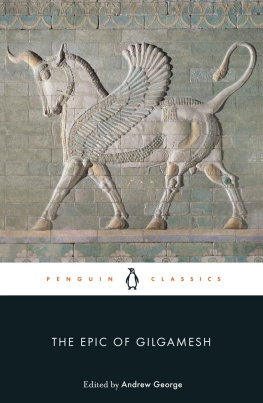
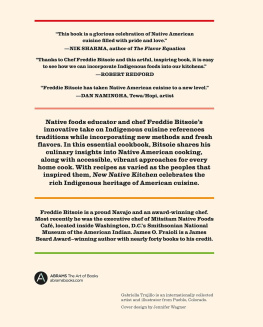
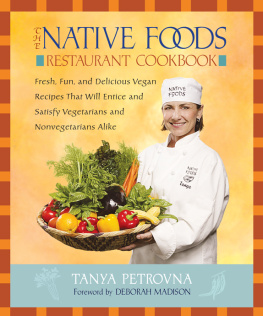
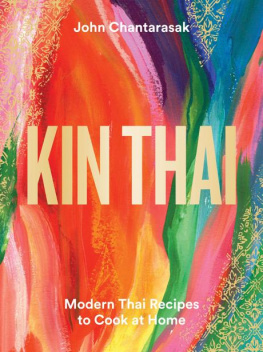
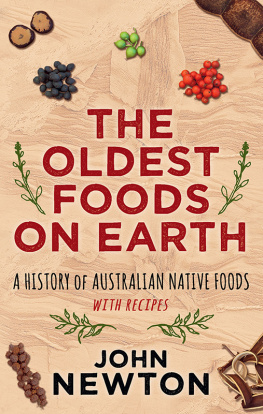
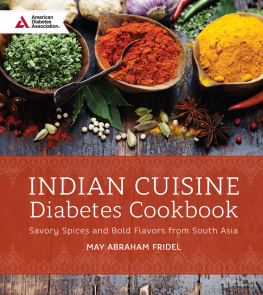
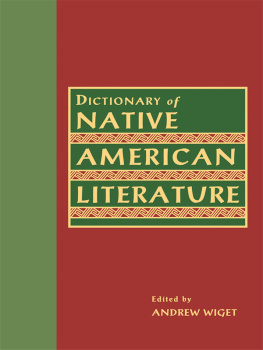
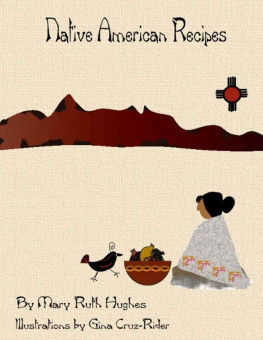
 ARSENAL PULP PRESS
ARSENAL PULP PRESS 
 CONTENTS
CONTENTS  I grew up in Telkwa, British Columbia, the third eldest of six kids. Our home didnt have indoor plumbing or running water. For food, my family and I had to take advantage of what was available to us seasonally, in the wild.
I grew up in Telkwa, British Columbia, the third eldest of six kids. Our home didnt have indoor plumbing or running water. For food, my family and I had to take advantage of what was available to us seasonally, in the wild.